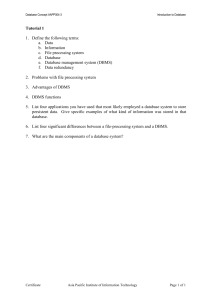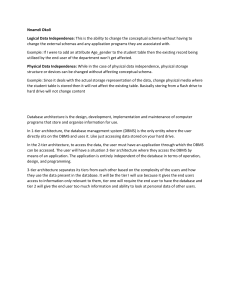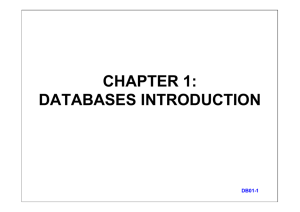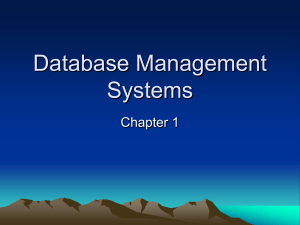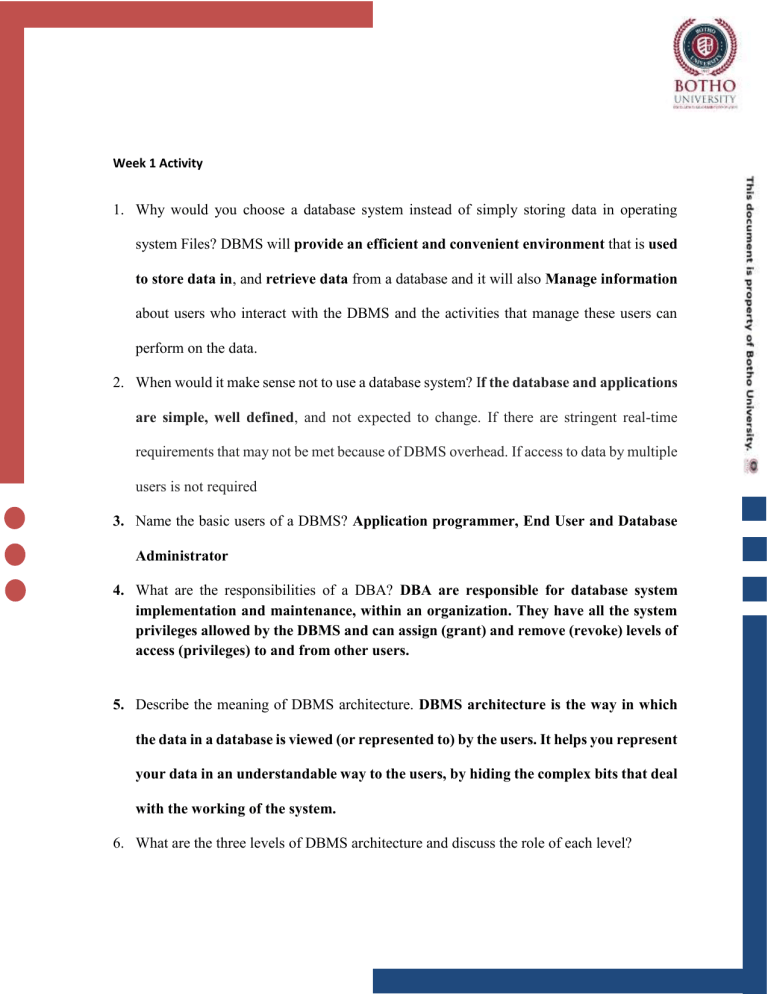
Week 1 Activity 1. Why would you choose a database system instead of simply storing data in operating system Files? DBMS will provide an efficient and convenient environment that is used to store data in, and retrieve data from a database and it will also Manage information about users who interact with the DBMS and the activities that manage these users can perform on the data. 2. When would it make sense not to use a database system? If the database and applications are simple, well defined, and not expected to change. If there are stringent real-time requirements that may not be met because of DBMS overhead. If access to data by multiple users is not required 3. Name the basic users of a DBMS? Application programmer, End User and Database Administrator 4. What are the responsibilities of a DBA? DBA are responsible for database system implementation and maintenance, within an organization. They have all the system privileges allowed by the DBMS and can assign (grant) and remove (revoke) levels of access (privileges) to and from other users. 5. Describe the meaning of DBMS architecture. DBMS architecture is the way in which the data in a database is viewed (or represented to) by the users. It helps you represent your data in an understandable way to the users, by hiding the complex bits that deal with the working of the system. 6. What are the three levels of DBMS architecture and discuss the role of each level? External Level (Describes a view of the database which is of interest to a particular user or group) Conceptual Level (Describes structure of the whole database for the entire community of users) Internal Level (Describes how data is physically stored) 7. What does DDLC stand for? Database development life cycle 8. Describe the stages involved in the life cycle of database development? Preliminary planning Feasibility study Requirements definition Conceptual design Implementation Database evaluation and maintenance 9. What is the role of the Disk manager and list its 3 main operations. Role of Disk Manager is the actual handling of data in the database. The main operations are: Retrieves (selects) blocks of data Replaces (updates) blocks of data Removes (deletes) blocks of data 10. Name 3 popular Database management systems. MySQL Oracle SAP and others…
